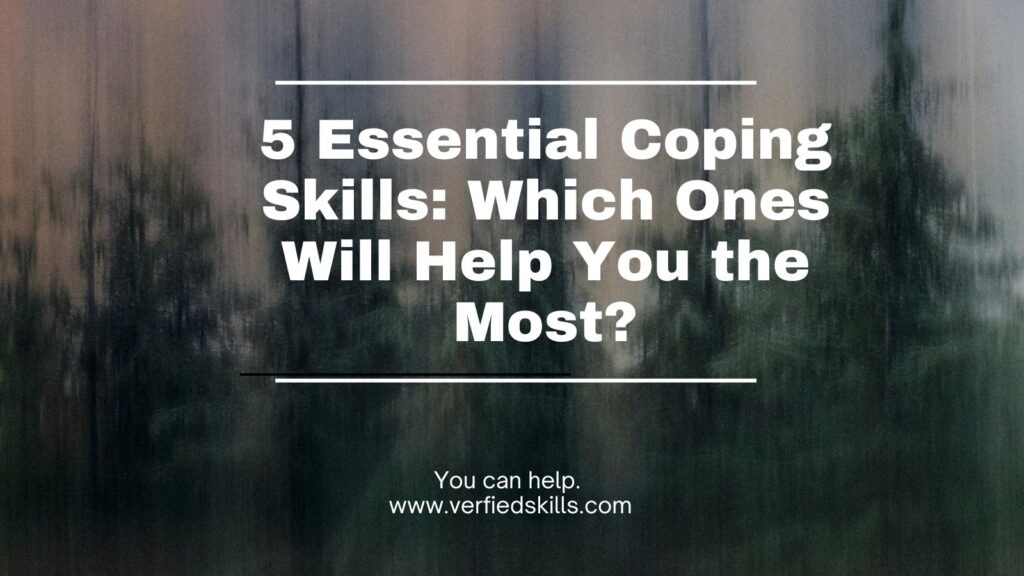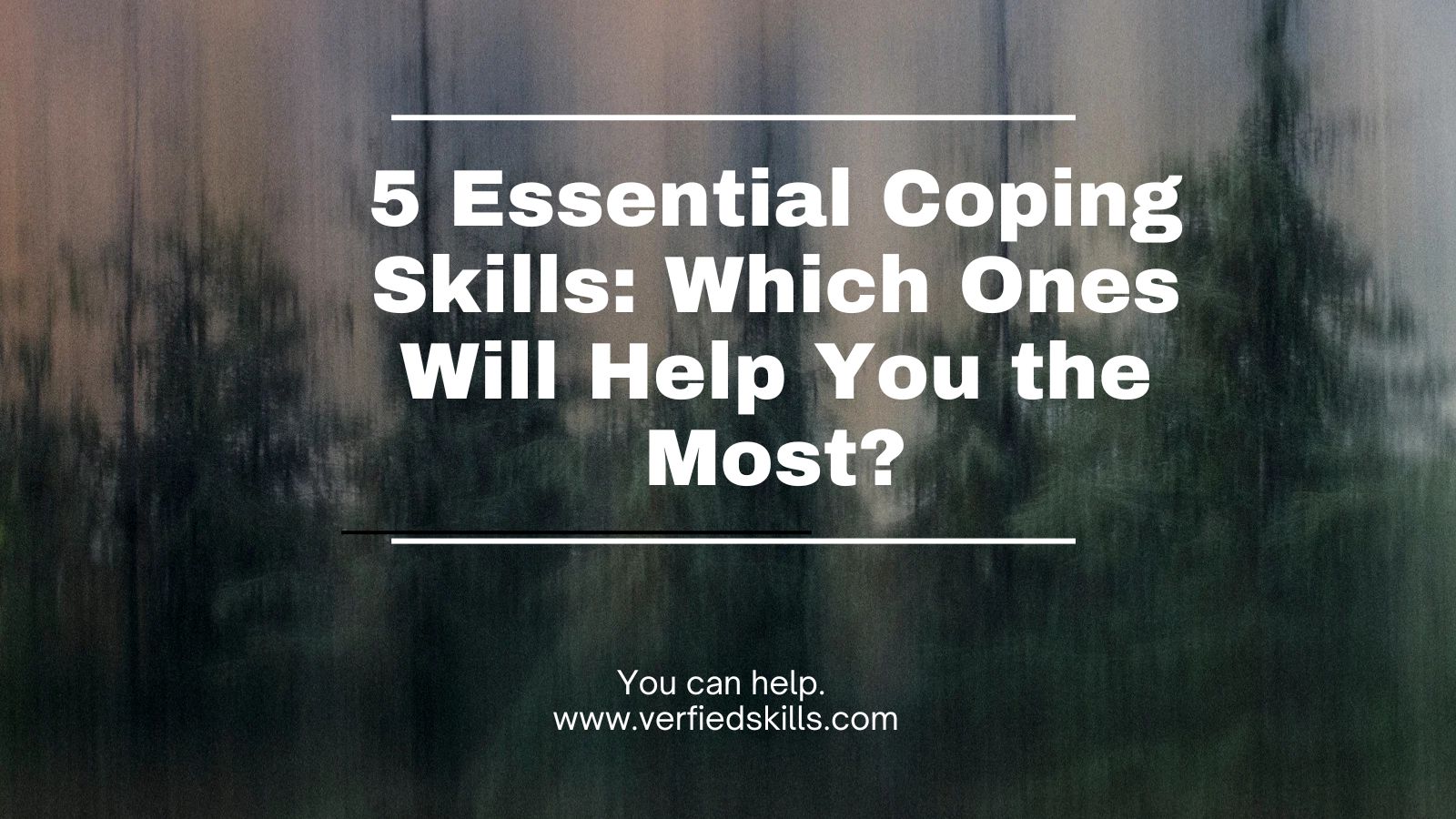Coping Skills:
Life can present stressors that can be too much to handle at times. These can include an overload of daily stressors, personal difficulties, or unforeseen circumstances. How we cope with these situations, however, determines the quality of our emotional health. Coping skills refer to those sets of techniques and strategies utilized to tackle stress, hardship, and other forms of emotions or situations that seem challenging. These skills protect the individual from executing negative emotions while enhancing their ability to withstand a lot in their mental and emotional self.

In this article, finding out about the importance of coping skills, ways of improving them will be central, and other questions which are frequently asked will be addressed so as to aid you in your path to overcoming the emotional challenges.
What Are Coping Skills?
Coping skills refer to the conscious and automatic strategies people apply in dealing with stress and negative feelings. They’re sometimes self-regulation techniques that are applied to help us in circumstances of push back and other highly emotional states as stress, anxiety, sorrow and many other intense feelings. Coping skills can include short, deep breath inhalation, seeking therapy, cognitive behavioral intervention strategies, and others that are more complicated.
Coping skills can be classified into two broad categories:
1. Problem-Oriented Coping:
- These strategies are employed to work on the stressor directly, and include trying to eliminate or decrease the source of stress. For instance, getting organized, looking for solutions, or discussing the issue with someone are examples of management techniques.
2. Emotion-Oriented Coping:
- These types of strategies aim at reducing the emotional reaction to the stressor, irrespective of whether the situation can be altered or not. Some of these strategies include: stress management techniques, relaxation techniques, engaging in some activities for instance hobbies, meditation, and or even speaking to a therapist.
Both strategies have their effectiveness depending on the stressor. Problem-oriented coping is the most effective when the issue at hand is amenable to change or control, while emotion-oriented coping is useful when the situation cannot be controlled and you find yourself helpless.
Why Are Coping Skills Important?
Having strong and effective coping skills are extremely beneficial in terms of psychological well-being, they burden us less and allow us to manage stressors naturally avoiding emotional dysregulation, feeling burnt out, or even experiencing a mental health crisis. Some other benefits of good coping skills include Peace of mind, better stress management, and being able to stay calm during a tough initiation period:
- Decreases level of anxiety and stress: Once an individual has strategies in place to manage negative feelings towards various situations, the possibility of experiencing stress or anxiety becomes minimal.
- Strengthen one’s ability to bounce back emotionally: Resilience is learning to bounce back after going through something difficult. Coping skills build resilience as they help you manage and learn from those situations instead of being overwhelmed.
- Assist in bettering the capacity to solve problems: When problems are approaching you with intention and lack of emotion, a solution can easily be found.
- Assist in protecting mental health and emotional wellbeing, dress even in stressful situations: These adverse conditions, be it depression, anxiety or stress-related illness can be mitigated by effective coping skills.
Suggestions for Additions to Coping Skills
Developing your coping skills is a lifetime journey to be undertaken, and, many of them are available for use and subsequent exploration. A few techniques below can help you expand your toolbox for coping better:
1. Learn to Focus Your Thoughts – Be Mindful and Meditate
Mindfulness is the ability to stay aware of the present time. It guides you to pay attention to your thoughts and feelings without judging them, which could lessen the chances of being stress-ridden. As a specific mindfulness method, meditation can a lot to do with decreasing stress levels while enhancing a person’s emotional response.
2. Increase the Frequency of Engaging in Other Activities that May Be Chosen One’s Daily Routine
There is a substantial correlation between physical health and mental health, and vice versa. Exercise, healthy eating habits and sufficient sleep are contributing factors towards improved stable emotions. In particular, exercising is known to increase the level of endorphins, which is a natural antidepressant.
3. Practice Reframing Negativistic Thoughts in a Positive Light
Cognitive behavioral therapy (CBT) is where one focuses on cognitive reframing – a technique that assists individuals in overcoming negative or distorted thinking patterns. This is particularly crucial as adopting a new focus reduces the emotional distress associated with high-pressure situations.
4. Establish Strong Social Contacts And Interrelations
Engaging in social interactions by confiding in friends, family, or legitimate organizations has been shown to reduce stress. This is because society has many roles that offer comfort, validation, and valuable perspectives.
5. Practice Stress Reduction Methods
Stress-reducing methods and techniques, including deep breathing, progressive muscle relaxation, and other physiological relaxation strategies, can be employed as they foster deep relaxation and tension reduction in the muscles of the body. These can particularly be effective during times of high stress or where there’s increased pressure to perform at high levels.
6. Self Compassion and Kindness to Oneself
Stress makes people more prone to be self-critical and at times more aggressive. In stressful situations, individuals should remember to reflect on the same level of care and patience they would offer a close friend. When under stress, try to refrain from being self-critical and instead think about self-nurturance.
7. Establish Targets Gradually and Realistically
Setting goals that are realistic and progressive can assist in breaking down large tasks that can be perceived as too much. Being methodical when establishing tasks can induce a positive outcome as it provides a sense of direction and progression on the goals set, thus reducing stress.
8. Participate in Hobbies and Creative Undertakings
Engaging in activities that you love can assist in distracting your mind from stress and help restore harmony. There are hobbies, such as painting, gardening, playing an instrument, or simply reading that serve a healthy purpose for the release of emotional feelings.
9. Practice Time Management: Simply Time Management
Responsible for tasks with too many duties – That’s often the cause of stress. All such pressure can be relieved if proper time management is exercised which can assist in task planning, organization and elimination of pressures.
FAQs About Coping Skills
1. How do I tell whether it is time for me to enhance on my coping skills?
In case the answers to these questions are in the affirmative, it may be time to seek additional training: Are you often feeling overwhelmed, anxious or feeling unable to control situations that lead to stress? There are others who tend to look the other way in case of problems or indulge in other forms of extremes like substance abuse or in worst cases suffer from emotional burnout or standstill.
2. Are there any applications for coping skills and their improvement?
Certainly! It is a gradual process in the life of a number of individuals in which different techniques are employed. Most begin on a simpler note – possibly with deep sucking breath, even trying to reach out to someone to talk, and then later adapting.
3. Coping mechanisms that should be avoided: Some examples.
Some of the unhealthy coping strategies may be procrastination, alcohol and drugs, emotional eating, self-injuries, or excessive work. These actions may numb the pain for a while but increases stress over time.
4. Unable to achieve success with coping skills, what next?
In case it feels like coping strategies are not working, it is worth taking a second look and perhaps trying new alternatives. A psychotherapist may be able to offer other recommendations for developing and enhancing your coping mechanisms.
5. How about the timeline in terms of length? How long would it take to see changes in coping mechanisms?
There is no straight answer to that though it depends on your willingness and the kind of strategies you employ. Seek improvements in weeks or months but remember the most essential thing is effort and dedication.
Conclusion
Skills of coping are very crucial techniques that enable us to deal with stress and emotional problems in a better fashion. As individuals practice resiliency strategies such as mindfulness, physical activity, reaching out to others for help and cognitive restructuring of negative self talk, they are likely to become more adaptable to the demands of life. Keep in mind that it is expected to go through some challenges and having adequate coping strategies in place can greatly strengthen your emotional and mental health.
If you feel that you are unable to manage life’s challenges or your coping strategies are ineffective, then don’t wait to contact any therapist. What we say when there is lot of struggle is just a survivor; one more thing we must remember when facing difficulty is that it is not all about surviving but the possibility of growing as a result of the challenge that.
